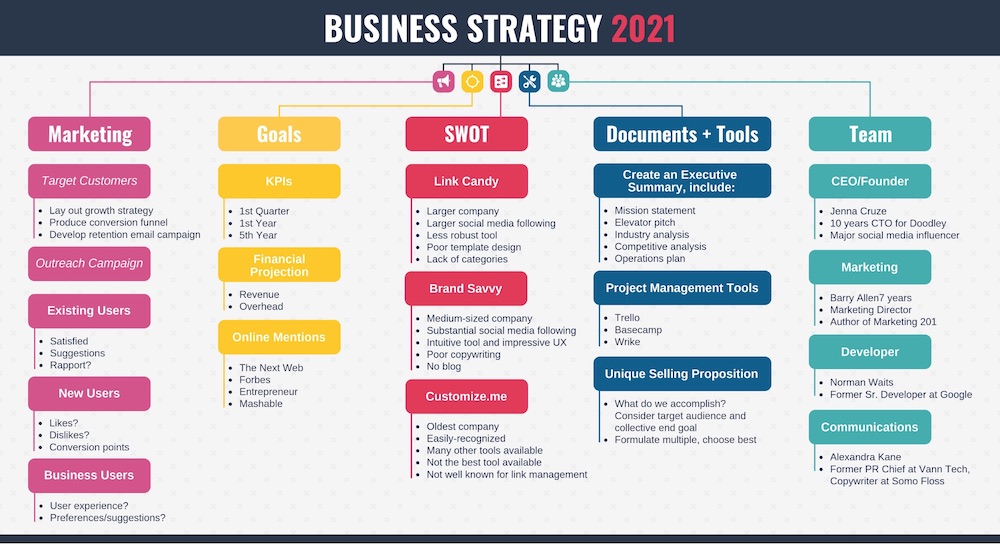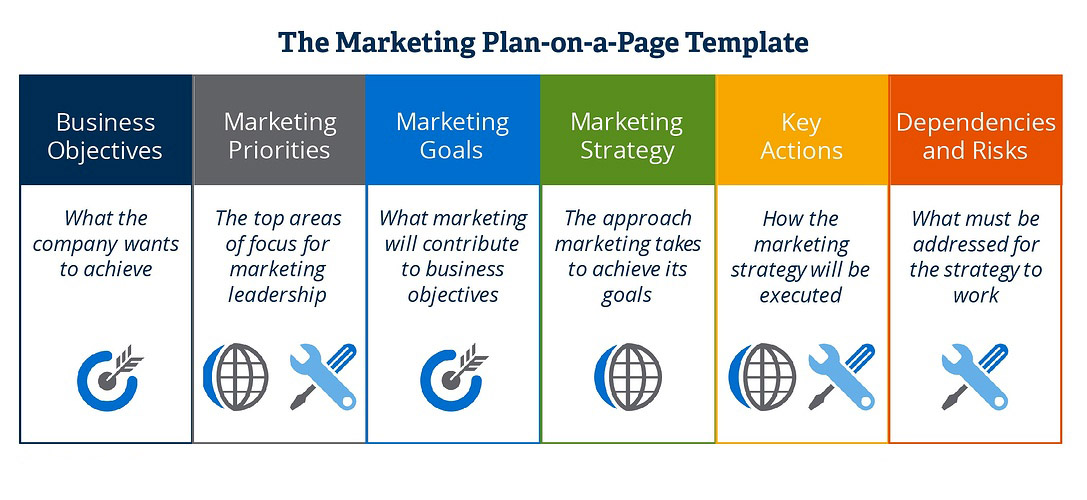What Should the Marketing Plan of Every New Business Contain?
If you’re about to be a fresh business owner, you may know you need a marketing plan for your business/company. It doesn’t have to be very complex or in-depth, but it has to contain some essential things – not to mention that you should set it up long before you open your business!
You can list everything in this, from what your short and long-term goals are to how you’ll achieve them. You can enlist the help of reputable companies to help you boost your brand’s credibility and trust and this should also be detailed in your plan. Companies such as notifyio.net are on hand to help you with things like this.
Given that marketing plans can get quite complicated – depending on the niche of your business and so on, today, we’ve decided to show you what every new business should consider adding to their plan!
Vital Information
The first things you will put in your marketing plan are data and information related to your business. These will, in turn, lead to extensive research of those things, mainly to see how your business will look once it’s on the market.
- Finances – financial reports and sales figures – if applicable – are almost mandatory. You want to know how much money you have, how much you spend, and how much you are willing to spend to grow your business further.
- Target Markets – Then, you should look at your services and products and see where you could market them and whether they could be improved.
- Marketplace Understanding – a proper marketing plan must show that you understand the market you’re trying to access.
- In this respect, we mention competitors, customers, distribution channels, demographic data, trends, etc. This is an excellent place to mention that the best way to determine where your new business will fit into the current landscape is to seek the guidance of an expert, such as attorney David Shulick. By working with someone who knows how these intricacies work and has experience building companies, you can ensure you set up your business correctly.
These will tell you if you should move on with the following points or revise the start of your marketing plan. Make sure to tick finances and everything related to markets/marketplaces.
Building the Brand
For those businesses who do not have the experience that they might want in order to be able to reach their audience as effectively as possible, a little outsourcing can go a long way.
By working with teams like a digital agency, you can begin to absorb and internalize much of how they work, building up your marketing knowledge base while also benefiting from a professional sheen that many businesses do not have when they first start their marketing efforts. Outsourcing can be a cost-effective way to ensure a professional standard in your marketing that you pick up and run with from then on.
When discussing online material, you should look into scripted content and professional video editing services through the experts at Broadcast Television Production. By partnering with specialists in this field, you ensure a polished product that is sure to get noticed.
Naturally, a marketing plan should also point out what you will do to build your brand’s image in all its aspects.
You’ll have to look into designers if you want a logo made, into social media experts if you want to be active on those types of channels, and even into guest posting services if you want to promote your business to as many people as possible – and online. After all, we are talking about marketing! The plan should at least point out all of the marketing options that your business has and also flesh out some of the strategies you may use!
Objectives, Opportunities, and Threats
Last, it would be best to have a section detailing objectives, opportunities, and threats. This will help you later on when faced with difficult decisions or challenging market conditions that may make you close your business or force you to invest more in it!
- Objectives – naturally, you must set realistic business objectives, goals, and expectations. However, this doesn’t mean that you should sacrifice profits for seemingly realistic purposes. Always do your best to both reach objectives and meet profits/deadlines!
- Opportunities – this section should lay out all the business opportunities that you encounter. For example, if you sell pool gear for children, and a new pool opens in one of the areas you operate in, you’ll want to intensify your marketing in the hopes of more sales.
- Threats – by threats, we don’t necessarily refer to competitors. For example, one of your suppliers is not having a good time, so you may want to find a replacement before you can provide your customers with what they want. The same can apply to software/hardware that you use and so on, and perhaps especially if you need a supplier that provides top-tier lab equipment, as that does have to be top-notch.
The Bottom Line
Of course, an in-depth marketing plan will contain many more things, variables, and whatnot. However, the things we mentioned above should not be forgotten, as they are essential to what we call marketing!
You must have a solid grasp over finances and market situation, know-how, and where you’ll advertise/market your business – in terms of online and offline –and also learn to identify realistic objectives, opportunities, and threats!
References and Sources
https://blog.hubspot.com/marketing/marketing-plan-examples
https://www.entrepreneur.com/article/43026
https://www.bdc.ca/en/articles-tools/marketing-sales-export/marketing/pages/5-no-nonsense-strategies-attract-customers.aspx



















